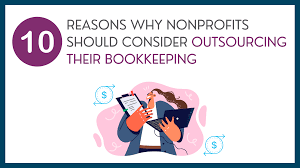Introduction
In an era where digital transformation defines competitive advantage, Microsoft Dynamics 365 has emerged as one of the most robust enterprise solutions for ERP and CRM. Whether it’s Finance, Supply Chain, Sales, or Customer Service, the platform offers unmatched flexibility and power. However, a successful deployment doesn’t solely depend on Microsoft—it depends heavily on the Microsoft Dynamics partner you choose.
The partner is responsible for tailoring the platform to your business needs, ensuring a smooth implementation, integrating legacy systems, training your team, and providing ongoing support. But many organizations unknowingly sabotage their success by making critical mistakes when choosing a Microsoft Dynamics partner.
Below are the most common pitfalls—and how your business can avoid them to ensure a high-impact transformation.
Focusing Only on Cost Instead of Value
It’s tempting to select the cheapest bid, especially when large digital projects come with tight budgets. But a partner who promises to deliver everything at the lowest cost might lack the experience, resources, or methodology to ensure quality outcomes.
Choosing a low-cost provider often results in:
- Delayed timelines due to inexperience
- Poor documentation and substandard customization
- Lack of scalability or integration capabilities
How to Avoid It: Focus on the value the partner delivers rather than just the cost. Evaluate the long-term ROI, not just the initial proposal. Look for partners who demonstrate how they’ll help you achieve business outcomes—not just check technical boxes.
Ignoring Industry-Specific Expertise
Not all Dynamics 365 projects are created equal. A retail business and a manufacturing firm will have vastly different requirements. Yet many companies choose a Microsoft Dynamics partner with general ERP experience instead of one that understands their industry’s nuances.
How to Avoid It: Prioritize partners with proven experience in your specific sector. Ask for case studies, references, and solution accelerators tailored for your industry. This ensures that they understand your compliance requirements, workflows, and pain points.
Overlooking Change Management and User Training
Microsoft Dynamics 365 can transform your business—but only if your people are ready to use it. Many companies get so focused on technical implementation that they ignore user training and change management.
This often leads to:
- Low adoption rates
- Increased errors and support tickets
- Resistance from staff
How to Avoid It: Choose a Microsoft Dynamics partner who includes structured user training, documentation, and change management strategies as part of the engagement. Adoption is just as critical as configuration.
Choosing a Partner Without a Long-Term Support Plan
ERP and CRM solutions are not “set it and forget it” systems. They evolve with your business. Many organizations make the mistake of selecting a partner focused only on implementation without considering long-term support and optimization.
How to Avoid It: Select a Microsoft Dynamics partner that offers post-go-live support, managed services, and regular system reviews. You want a partner that’s invested in your continued success, not just your initial deployment.
Failing to Assess Integration Capabilities
Most businesses don’t operate in a vacuum—they rely on multiple systems such as HR software, payroll tools, POS platforms, or third-party apps. Failing to assess whether your partner can integrate Dynamics 365 with your existing tech stack is a costly mistake.
How to Avoid It: During the evaluation, ask potential partners about their experience with third-party integrations. Ensure they have API and middleware knowledge, and can demonstrate successful integrations in past projects.
Not Vetting Certifications and Microsoft Alignment
Many companies assume that all Microsoft partners offer the same level of expertise. That’s far from true. Microsoft has different tiers of partnership—Silver, Gold, and the new Solutions Partner designations—each reflecting a different level of expertise.
How to Avoid It: Always ask for certifications, Microsoft accreditations, and partner tier. A Gold or Solutions Partner has proven competencies, customer success, and technical expertise validated by Microsoft.
Neglecting Cultural and Communication Fit
Even if the partner is technically skilled, a misalignment in communication style or business culture can derail the project. Poor collaboration and unclear updates often lead to misunderstandings and missed deadlines.
How to Avoid It: Conduct workshops or trial engagements before signing long-term contracts. Evaluate how the partner communicates, documents progress, and collaborates with your internal teams.
Top Microsoft Dynamics Partners You Can Trust
To help you begin your search on the right foot, here’s a list of top Microsoft Dynamics Partner providers known for delivering high-quality solutions across industries:
InTWO
A recognized Microsoft Solutions Partner, InTWO offers end-to-end Microsoft Dynamics 365 services, from ERP and CRM implementation to cloud hosting and managed services. With offices across the Middle East, Asia, and the U.S., InTWO combines global best practices with local expertise. Their track record spans industries such as construction, manufacturing, real estate, and retail, making them a highly trusted Dynamics partner. They’re especially known for their cloud-first approach and deep Microsoft Azure integration capabilities.
Hitachi Solutions
Hitachi Solutions is a global leader in Microsoft Dynamics services with deep vertical knowledge in retail, manufacturing, and financial services. They focus on delivering industry-specific IP on top of Dynamics 365 and have received numerous awards from Microsoft for innovation and excellence.
Avanade
A joint venture between Accenture and Microsoft, Avanade delivers enterprise-scale Dynamics 365 transformations. Their strength lies in global delivery, innovation, and deep AI, analytics, and cloud integration services.
DXC Technology
Known for large-scale digital transformation projects, DXC Technology combines Microsoft Dynamics implementation expertise with a strong focus on enterprise customers. They’re a good fit for complex global rollouts.
HSO
HSO is a global Microsoft Partner focused on Dynamics 365 and the Power Platform. They bring industry-specific experience, especially in manufacturing, distribution, and services, with deep functional knowledge and accelerated deployment models.
How to Choose the Right Partner for You
Here’s a quick checklist to help you vet your options before committing:
- Do they have relevant industry case studies?
- Are they a Microsoft Solutions Partner (or formerly Gold Certified)?
- Do they provide post-implementation support and training?
- Are they transparent about costs and project timelines?
- Can they integrate Dynamics with your existing systems?
- Are they open to pilot projects or workshops before signing?
Conclusion
Choosing the right Microsoft Dynamics partner is one of the most important decisions you’ll make on your digital transformation journey. While Dynamics 365 is a powerful platform, its true value is unlocked only when implemented with precision, strategy, and long-term vision. Avoiding the common mistakes outlined above will help you select a partner that not only delivers a successful deployment—but becomes a strategic ally in your growth story.
Whether you’re a mid-sized enterprise or a global brand, aligning with a trusted provider like InTWO or others mentioned can help you transform with confidence, agility, and measurable success.


